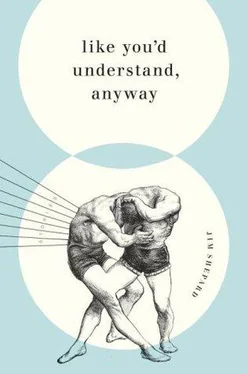By such measures idlers and thugs had now become the People. Histrionic patriotism was the only requisite for public speaking, so those especially compromised by shameful pasts rushed to demonstrate their worthiness by addressing their Popular Societies, agitating in all corners, disrupting the courts and trials, searching homes themselves, denouncing and condemning and turning France into one boundless parade ground of calumny. The solution for all national troubles was understood to be an unflagging austerity of purpose in the form of an evermore passionate embrace of ruthlessness. There've been mass cannonadings in Lyon. Carrier, the Revolutionary representative at Nantes, sealed hundreds into the holds of barges and sank them in the Loire in what he called “vertical deportations.” Saint-Just announced that the Republic consisted of the extermination of everything that opposed it. The Marquis de Bry offered to organize a force he called the Tyrannicides: freedom fighters dispatched to foreign capitals to assassinate heads of state or anyone else the Committee might stipulate.
“The People make their demands,” Henri-Francois remarked one night at dinner, apropos of our ever-increasing workload. His hair fell across his forehead like a scrubbing mat. He always seemed to be nursing a grim new resentment against his mother.
“Their inner lives have been made bestial,” Anne-Marie said to him, after having been silent the entire meal.
“That's not entirely what she means,” I told Legros, who observed her as though she were a mouse in the grain supply.
“That's exactly what she means,” he answered, with some affability, and then went on with his meal.
I drove my assistants day and night, but we could not master our burden. Lethal misadventures and irregularities compounded daily as batch after batch moved out of the tumbrils and into the baskets. One Tuesday we dispatched twenty-two condemned in twenty-nine minutes. Pastry merchants divided their attention between the scaffold and their customers. Friends asked friends in the crowd if they were staying and were told, no, not today — they had things to do. So much blood ran down the front of the platform supports that boots there sank into the supersaturated earth as if into a mire. One woman in line among the condemned told me that the lunette's wet wood looked like it would be unpleasant on the front of her neck. When the blade dropped, her body jerked in the straps, as if abruptly trying to find a more comfortable position.
In our home, with Legros and Henri-Francois sent away on an errand, we received the Sacrament from our nonjuring priest.
“They're putting the Queen on trial,” Anne-Marie told me one morning, once the priest had left. She said that he had confirmed the rumor. In one stroke she seemed to have resuscitated all of her old intensities. She crossed and recrossed the room. She wrung her hands in a series of nervous contractions. She was beside herself with certainty that the Queen would be condemned.
“Not necessarily,” I told her, trying to get my bearings.
“You have to resign. You have to withdraw. You have to refuse to have any part in this,” she said.
“There's nothing to refuse, yet,” I told her.
“You have to refuse,” she cried.
I told her I would attend as much of the trial as I could. On those days I did attend, she demanded a full recounting. I spared her very little. In those chambers, the Queen was the Austrian she-wolf, the arch-tigress, the cannibal who wanted to roast alive all the poor Parisians. It was claimed she'd bitten open the cartridges for the Swiss Guards in their defense of the royal family to help speed their slaughter of the oncharging patriots. She sat alone in the dock, a childlike figure further diminished by her incarceration. Her eyesight had begun to weaken and her hair to turn white. She looked twenty years beyond her age. She'd been made to reply to accusations of incestuous relations with the Dauphin. The poor boy had been made to parrot unspeakable things, and his testimony was read back to her.
Everything about the Dauphin injured Anne-Marie. She knew a wife of the assistant jailer and learned the boy had just passed his eighth birthday alone. Apparently he was chronically ill and had been ministered to by his mother with unceasing tenderness until he'd been made a ward of the Republic and dragged to a cell immediately beneath hers, from which she could hear him shrieking in his terror and loneliness. He was left to himself for weeks at a time. The shoemaker appointed to be his personal jailer looked in only every so often. Even he found the boy's cries hard to take. But he also made him wear the red bonnet and sing the carmagnole and the Marseillaise and to blaspheme God from his windows.
My wife lay awake nights, mute with suffering as she considered various aspects of his plight, until she burst out with wailing, jolting me from my half drowse. When I embraced her she demanded a promise that I wouldn't be a part of this. She needed to be sure that I wouldn't be a part of this. I wouldn't be a part of this, I assured her, and reapplied my embrace.
Only weeks after the inauguration of the machine, the medical community found itself grappling with the controversy concerning the survival of feeling and consciousness in the separated head. Did the head hear the voices of the crowd? Did it feel itself dying in the basket? Could it see the light of day above it?
The question became more urgent following Charlotte Cor-day's execution for the assassination of Marat, when Legros, apparently communing with his inner brute, saw fit to slap the severed head while he was displaying it. And the face, hanging by the hair, showed the most unequivocal signs of anger and indignation in response. There was an uproar from those in front of the scaffold who could see it, and afterward many medical eminences were interviewed on the phenomenon for the newspapers.
Eventually I was asked to assist a Dr. Seguret, professor of anatomy, who'd been commissioned to study the problem. He set up an atelier on the same square as the machine and my assistants delivered to it a total of forty heads. We exposed two — a man's and a woman's — to the sun's rays in his back courtyard. Their eyelids immediately closed of their own accord, and their faces convulsed in agony. One head's tongue, pricked with a lancet, withdrew, the face contorting. Another's eyes turned in the direction of our voices. One head, a juring priest's named Gardien, dumped into the same sack with the head of one of his enemies, had bitten it with such ferocity that it took us both to separate them.
Other faces were inert. Seguret pinched them on the cheeks, inserted brushes soaked in ammonia into their nostrils, and held lighted candles to their staring eyes without generating movement or contractions of any sort.
His report was suppressed, and he refused to have any more to do with such experiments, or with me.
“What have you decided?” Anne-Marie took to asking each day as the Queen's trial dragged itself on. In addition to all of the other charges, there were the letters abroad, many of which had been intercepted. All military defeats were being blamed on her treachery. Her son's illness on her sexual demands. As proof of the latter, his hernia was displayed.
In bed with my weeping Anne-Marie, I tell her I see no way out: the letters demonstrate conspiracy, and for all other charges, the accusers invent the evidence they lack. We must be resigned to God's will and summon the strength to prepare ourselves to endure the terrible stroke.
“Your terrible stroke,” she responds. “You must not do this. You understand that.”
But she knows, I tell her, that God alone can alter the course of events at this point. It's His mercy for which we must ask, even as we submit to His decrees.
Читать дальше












